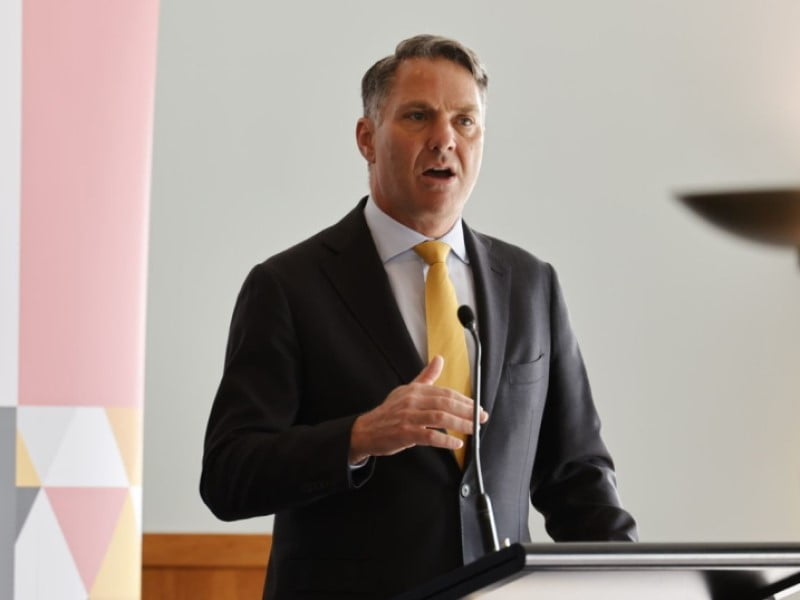AUKUS stakeholders have warned the trilateral security pact faces many barriers beyond nuclear submarines, flagging fundamental issues around talent, export controls and culture in a new report released on Tuesday.
Produced by PwC in partnership with the American Chamber of Commerce and the Australian British Chamber of Commerce, the report comes a year after the pact was announced and highlights the barriers and opportunities for “maximising Australia’s AUKUS opportunity”.
Based on consultation with industry, research, and government between March and October 2022, it flags a number of issues that would inhibit the flow of benefits from AUKUS.
Of all the respondents, 60 per cent flagged that there are issues with current processes. The same proportion also noted local industry content and supply chains are integral to the success of AUKUS.
It also found that 80 per cent of governmental respondents “reported talent and people shortages”, 78 per cent of industry respondents said, “export controls as an impediment to AUKUS success”, and that 67 per cent of research respondents “called for a change in culture and speed”.
A number of discussion points for the success of AUKUS were also raised in the report, including the potential for an AUKUS visa, a tripartite AUKUS office, and a ‘fast lane’ for AUKUS procurement.

At the launch of the report, Defence minister Richard Marles again described Australia’s strategic circumstances as the most “complex and precarious” since the end of world war two.
He said while “the bulk of [AUKUS] activity right now” is about nuclear-powered submarines, the partnership will develop a “much more robust” set of supply chains across the three countries and better skill transfers.
“[There are] real opportunities in terms of Australian industry supplying into both the United Kingdom and the United States. And it’s not just about the supply chains, it’s about those who work within them. There are in turn real opportunities for workers to gain skills in the United Kingdom, the United States,” Mr Marles said.
The Defence minister noted that the exchange of skills has already begun, with Australian workers are participating the construction of the UK’s first Type-26 frigate, HMS Glasgow. He also expects a similar arrangement for the construction of submarines in the UK as well as the training of Australian submariners on board UK and US vessels.
The report stated that US export controls, specifically International Traffic in Arms Regulations (ITAR) are in need of reform. The regime presents a “finance and resource intensive compliance burden” and treats intellectual property in a way that “excessively disincentives” cross-border research and development, according to the report.
If these barriers can be overcome, the report outlined the various channels through which Australian advanced manufacturing and innovation would benefit.
Advanced manufacturing will be bolstered through AUKUS across four channels: technology transfers, increased access to talent, streamlined regulation reducing compliance costs, and access to export markets through the integration of industrial bases with the larger UK and US defence capability markets.
The report also argues that Australian innovation will be boosted through two channels: increasing “competitive pressures via access to UK and US industrial bases” and “enabling dual-use innovations and indirect economic effects”.
“Opening up supply chains under AUKUS is a three-way street. While Australian businesses will find new export markets, UK and US companies may find similar opportunities in Australia. This will expose domestic firms to greater competitive pressure, creating new incentives to improve productivity to remain competitive with foreign alternatives. This could also accelerate the shift from traditional infrastructure towards advanced capabilities,” the report said.
It also reiterates that Australia’s level of research and development expenditure, as a percentage of GDP is around 1.8 per cent, which is below the Organisation of Economic Cooperation and Development average of 2.5 per cent.
Mr Marles thanked former Defence minister and opposition leader Peter Dutton for his work on signing Australia up to AUKUS.
“This is a really important document speaking to a really important initiative, and I absolutely give credit to Peter Dutton for getting this all started. It is very much a bipartisan effort and we see huge opportunities for this country,” Mr Marles said.
Do you know more? Contact James Riley via Email.

